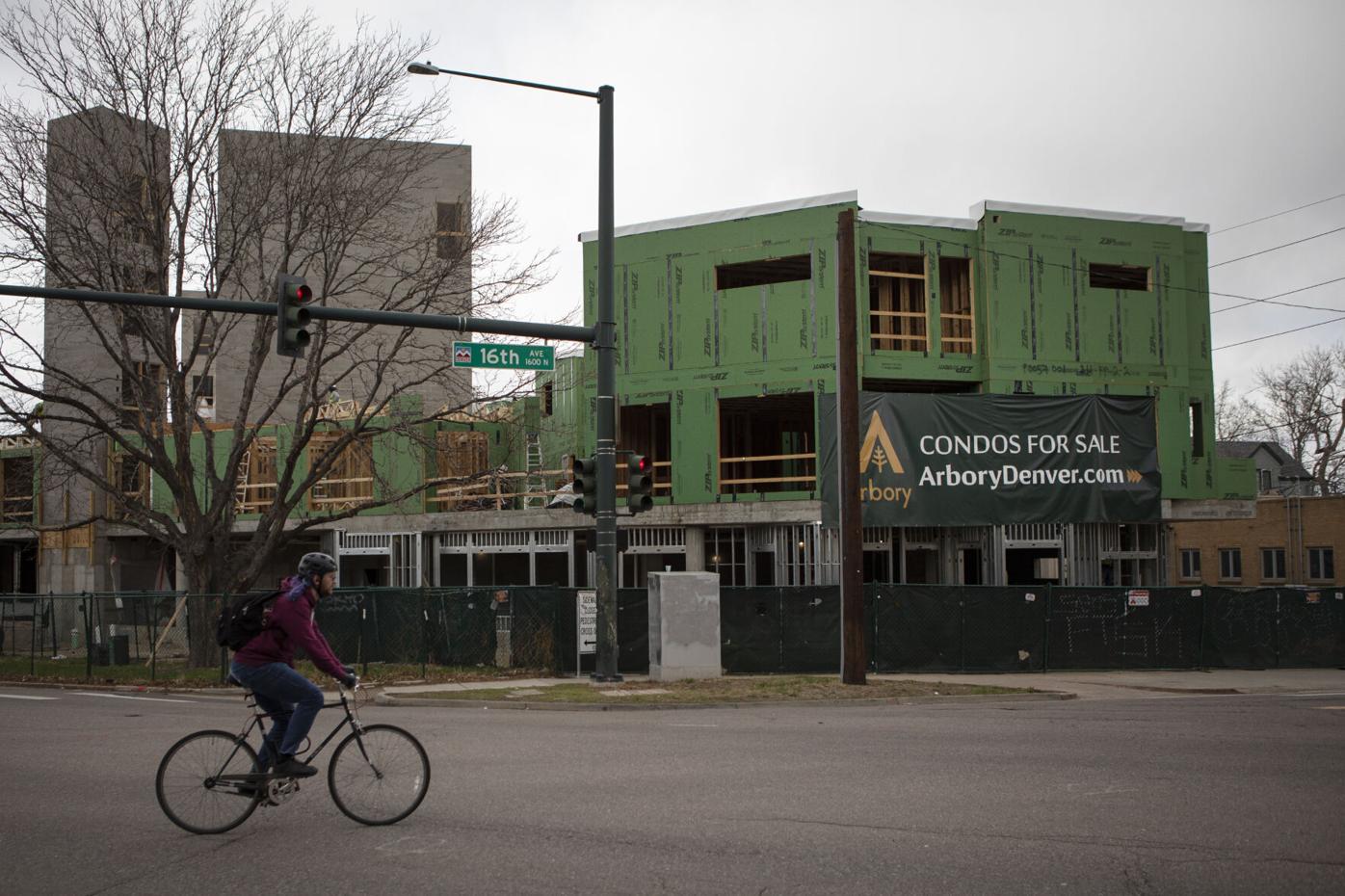Denver set to vote on affordable housing policy that has had success in other cities
Denver City Council will hold a public hearing and final vote on its Expanding Housing Affordability guidelines Monday, making changes to building requirements across Denver city codes to require affordable housing be built with market-rate projects.
The full council has been in support of the program, which was made possible after the Colorado Legislature passed HB 21-1117 last year, allowing local governments to implement affordable housing policies like this one. Denver will be the first municipality in Colorado to do so if council approves it in final reading Monday.
Community Planning and Development spokesperson Laura Swartz said inclusionary housing policies have been successful in many rapidly growing cities across the U.S., though. Cities like Seattle, Minneapolis, Atlanta and San Jose have been pleased with the results in the first few years having similar policies in place.
Breaking down Denver’s proposed Expanding Housing Affordability Guidelines
“Denver’s position is that inclusionary housing can’t solve the housing crisis alone, but it is a proven strategy for cities and states to create, maintain, and preserve housing units that are affordable for generations,” Swartz said in an email. “An important element of successful policies is to combine requirements with incentives, such as lower fees, parking reductions, and height increases, to help offset the cost of building affordable units and increase the overall supply of housing. These incentives are part of Denver’s proposal.”
The nuances of each city’s policy differs based on the city’s needs, requiring different percentages of units be affordable at different area median incomes. Some programs include the creation of both for-sale and for-rent homes while others don’t. Most offer a fee-in-lieu option. Some cover the whole city while others are set to specific districts within the city.
Elfric Porte, Minneapolis’s director of housing policy and development, agreed with Swartz’s idea that while inclusionary zoning is definitely helpful, it’s not the sole answer. He said it can be hard to attribute what’s impacting the city’s development to just one factor given the impacts of the pandemic and increased material costs as well, though.
Minneapolis’ council adopted its policy in 2019, and since then the city has seen 16 projects permitted through the inclusionary zoning program, creating 93 on-site affordable units and even more off-site. They’ve also got over $6.6 million in in-lieu payments, as well as many other affordable housing projects exempt from the program.
“There are a mixture of developers that are paying the fees or going in and adding the additional affordable units, so I think from that standpoint, it’s serving the purpose that it was intended,” Porte said.
Porte said he thinks conversations will continue when it comes to the amount of money each of the fees are. He said it may be too early to make any decisions based on what the city has so far, but with the market continuously changing, conversations around fees will too.
Denver City Council moves Expanded Housing Affordability guidelines to public hearing
“Affordable housing is not centralized to one geographic area, so the more cities across the country can embark on these efforts — not just the major cities, but the suburban cities as well — would be critical to addressing the affordable housing concerns in our country,” Porte said.
Lina Martinez, a housing and community development compliance specialist with the City of Atlanta, said she thinks Atlanta’s inclusionary zoning has been successful in bringing additional affordable housing into the city.
Atlanta’s program is similar to Denver’s in that it requires affordable housing be set aside with all developments consisting of 10 or more units. Developers have the option to set aside 10% of its units for incomes below 60% area median income, 15% for incomes below 80% AMI, or pay an in-lieu fee that goes toward additional affordable housing development.
Between the start of Atlanta’s program in January 2018 through the end of 2020, the city saw 362 new affordable housing units developed, serving area median incomes between 60% and 80%.
“The conclusive result of this evaluation of the IZ program’s first three years is that the program works,” Atlanta’s 2021 report on its program reads. “It serves as a mechanism to align public and private sector incentives and investments in the development of these areas for the public good of preserving affordability as these areas experience rapid economic growth.”
Kyle Piccola with Healthier Colorado, a nonpartisan nonprofit that aims to give all Coloradans the opportunity to live a healthier life, said housing is a key predictor of health. He said his organization has been supportive of the inclusionary and incentive zoning policies, as such programs can help build up a long-term supply of affordable units. He said Denver is roughly 50,000 units behind where it needs to be.
Denver committee moves affordable housing proposal to full council
“We feel that the Denver EHA strikes the right balance of getting builders to build actual units, but it also sets a long term opportunity for us to continually inject new affordable housing units into our communities across Denver,” Piccola said. “This isn’t going to be the end-all, be-all to solve all of Denver’s affordable housing needs, but I think it sets a really strong foundation to actually build units, and that’s what we need.”
When looking at other cities across the country with similar inclusionary zoning policies, Piccola said Healther Colorado was confident it’s the right choice since they didn’t see development slow down in any other cities.
“If we can help solve some of those social determinants of health, we’re hoping that Colorado can see better health improvements and outcomes on the other side,” Piccola said. “Your home is really the foundation of your health… the more and more we can help people secure affordable and stable housing, the more and more we know that those people are likely going to see better health outcomes.”







